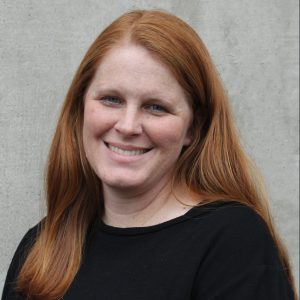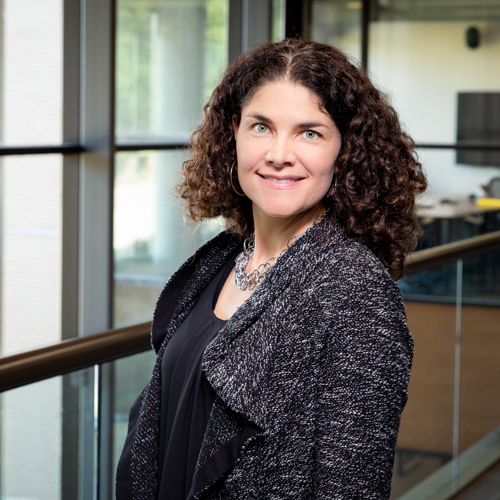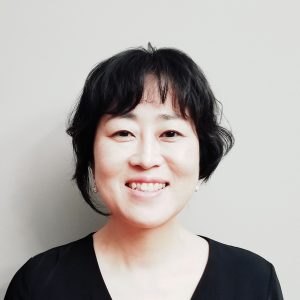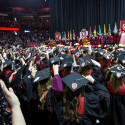Student to student: How professors are stepping up
The challenge of adjusting to virtual learning has been difficult at times for students, but it has also had a significant effect on professors.
With fewer in-person lectures, they’ve had to find new ways of teaching and also have had to gain a new sense of understanding for their students.
I asked graduating seniors how they felt about their classes and if they had any professors that have really stepped up for them during the chaos of this school year.
A professor of mine who’s been very accommodating and empathetic this semester is Karyn Riddle, who teaches my Journalism 565: Effects of Mass Communication class.

Professor Karyn Riddle
At the beginning of the semester, she asked our class what kind of support we needed from her throughout the semester. She has supported us all the way. From weekly email updates reminding us of deadlines to her reminder in recorded lectures to reach out if we have any issues, she has made sure that she is accessible to us.
Riddle said that she approached this semester with the goal of making sure her students felt supported.
“It was my goal to approach the semester with grace and compassion,” she said. “My overarching principle was that any student who needed help in any form – whether that be a due-date extension, extra time on a quiz, a one-on-one conversation, anything – would get it, no questions asked.”
Senior Alexandria Millet says most of her remote classes have gone smoothly and she credits this to the help of her professors.
“Honestly, my classes have been going great and I’m really grateful for that. A lot of it, honestly, has to do with the support and the understanding of my professors this semester,” said Millet.

Associate Professor Linn Posey-Maddox
She is in two Journalism classes, an Education Policy class, a Curriculum in Instruction class, and a Legal Studies class.
Out of all of her classes, she said that hands down, the professor for Education Policy 648: The Sociology of Education class, Linn Posey-Maddox, has been the most understanding and accommodating during these difficult times.
“I would have to say Prof. Posey-Maddox. In terms of COVID, she has just gone above and beyond and created space for people who need to catch up, miss an assignment, and creates options for us,” she said. “I cannot overstate just how amazing she has been and I’m taking note from her of how to be with people.”
Posey-Maddox has approached this semester focused on making sure that she enters her classroom with empathy, she said.
“It’s an honor to know that my students feel supported and have appreciated the flexibilities I’ve provided this semester,” she said. “As faculty, staff, and students are all experiencing a host of challenges, it’s my hope that empathy, compassion, and equity can guide all our efforts this year and beyond.”
Senior Syeeda Simmons said her Design Studies 626: Interior Design 5 professor, Brooke Godfrey, has done a great job aiding her students throughout the semester.

Faculty Associate Brooke Godfrey
“I’m taking my final interior design class and with it being instructed completely online, my professor has been flexible, understanding, and accommodating throughout the entire semester,” she said.
Just because classes are online that does not mean that professors have more time on their hands. Simmons also says that her professor has been easily accessible to the students.
“Overall, her communication with us has been consistent and she has made herself a useful resource throughout this time of uncertainty and hardship,” she said.
Godfrey was happy to hear that one of her students thought so highly of her. “It’s great to hear positive comments from students, it means a lot,” she said.
The pandemic has given her an interesting opportunity to get closer to her students, she said.
“Teaching studio design courses in an online format has given me the chance to know the students even better than I do when we’re in person, an unexpected and fantastic side effect of our current situation, and one that I cherish,” she said.
Senior Allyson Konz says that even though she has faced some challenges in one of her art classes her professor, Yeohyun Ahn, was able to help her out and make sure she felt supported.
This semester in her Art 575: User Interface and User Experience class, students were given a semester-long project of creating a mobile application from start to finish. The students were divided into groups and unfortunately, at the beginning of the class, one of Konz’s group members dropped the class leaving her group with one less member and more work to be divided between the rest.
“Throughout the course of the semester, Professor Ahn has been more than understanding and worked with us closely to ensure that we could still be successful in our project,” she said.
It was her professor’s empathy that allowed Konz to still do well and be able to keep up with the workload and demand in her class. That’s not all — Konz says this professor helped her even beyond that.

Assistant Professor Yeohyun Ahn
“Her willingness to be flexible with students while still holding us to high design standards has allowed me to produce some of my best work at my time at UW–Madison,” she said.
Ahn was honored that one of her students felt this way about her teaching style. Her goal was not only to foster a good relationship between her and her students but also between the students themselves.
“I foster supporting systems for students not only between faculty and students but also between students and students to support each other to succeed in the course,” she said. “I emphasize their ultimate goals from my course is not to have an “A” at the end of the semester but to create professional UI/UX design products to show their own vision as future designers.”
Having a professor that makes you feel comfortable and reassured can make a huge difference. It might even make some students more engaged in the course material.
Godfrey said it best: “We’re all in this together, and we’ll move forward stronger, with new skills and methods to connect that will continue to improve our academic experiences in the future.”
Tags: commencement, faculty, students



